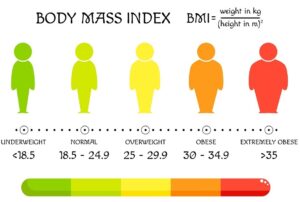Have you had difficulties losing weight? Difficulty losing weight is a very common concern for people and it’s not just a cosmetic concern. Taking steps to reach levels closer to your ideal weight can help you feel better in general, but it can also help prevent the onset of disease and other health problems.
Weight loss is often difficult for many people. Sometimes this weight gain has been slow and insidious, over many years. For women, it can become even more complicated during menopause.
There are many diets and options available when considering weight loss methods, but how do you know which one is right for you? It can be confusing and it’s easy to get discouraged. What weight loss options have you already researched or tried? It may be that you started out with good results, but have now reached a plateau. It may also be that you have gained a lot of weight back at the end of a program or when you stop.
In addition to diet and exercise counseling, conditions such as diabetes are often ruled out to ensure that a hormonal deficiency is not the cause of the weight loss difficulty.
There are many health problems that can make it difficult to lose weight such as:
- Hormonal disorders such as PCOS and hypothyroidism
- Anxiety, stress, sleep and depression problems
- Problems with intestinal transit, digestion and food intolerance.
In this case, it will be possible to suggest the use of certain plants, food supplements, or other solutions to improve the situation. This will facilitate the weight loss process.
Goals and objectives
The goals for healthy weight management are to create a healthy lifestyle that can be maintained over time in order to bring the Body Mass Index (BMI) value within a healthy range. My goal is to improve overall well-being, energy, confidence and maintain long-term gains.

Together, we will identify the factors that cause excess body weight. These may include poor nutrition, poor stress management, a sedentary lifestyle or a health condition (diabetes mellitus.) We will also look at improving body composition (i.e. the ratio of muscle to fat).
- Understanding a nutritious and balanced meal
- Balanced energy ratio : Energy input (calorie intake) to Energy output (calorie out)
- Importance of hydration
- Need for detoxification (if necessary)
- Improving sleep
- Correcting nutritional deficiencies if necessary
What should I expect when I consult a naturopath to lose weight?
Usually, the first visit to a naturopathic physician is to do a naturopathic assessment, i.e. collect informations from the client. We discuss diet history, activity levels, exercise history and any previous successful or failed interventions. We will discuss the impact of stress on health, and other factors affecting metabolism.
The consultation usually lasts about an hour, and a personalized plan will be established based on your needs.
I meet with my clients where they are at in their process and develop a plan that fits their lifestyle.
If you would like to make an appointment to have the above discussions, please call 514-996-0866 to make an appointment.
